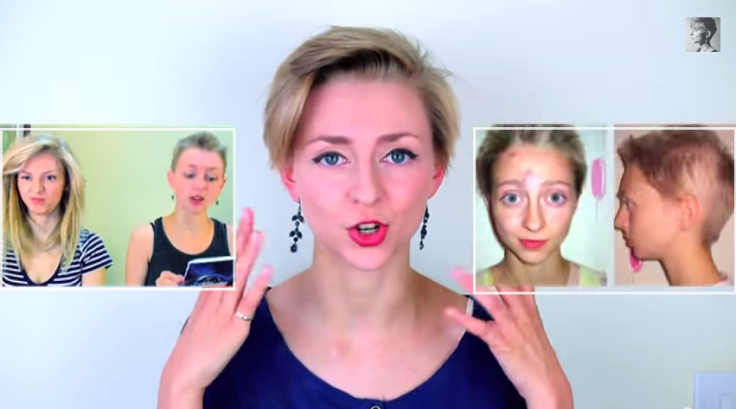Woman's Selfies Chronicle Hair-Pulling Disorder And Depression For 6 1/2 Years: What Triggered Her Trichotillomania?

After six-and-a-half years’ worth of selfies chronicling her battle to overcome a rare impulse-control disorder and depression, Rebecca Brown, 21, has compiled all of the photos into one time-lapse video featured on her YouTube channel. At the age of 14, Brown began her struggle with Trichotillomania, a disorder that causes her to pull hair from her scalp, eyelashes, eyebrows, legs, and other parts of her body.
“Beauty is more than what we see with the eyes. People are more than their conditions. I am more than my hair and skin,” Brown wrote as the description for her YouTube video. “Watching this back is rather scary for me, it makes me both sad and happy at the same time ... when you see the smiles in this, especially after the baldness happens ... those smiles are genuine.”
In the video, which has garnered over 1,800,000 hits as of Monday, the young woman from the UK goes from having long blonde hair to short hair to being bald in the span of six-and-a-half years — she began back in 2007. She also offers footnotes describing life events and her psychological condition at the time of the photo, using captions such as “Diagnosed with Depression” and "Severely Depressed Suicidal.” Brown, who also suffers from a disorder that causes her to compulsively pick at her skin known as dermatillomania, says that although she still struggles with her condition, it is not as severe as it once was.
Although research into the causes and treatments for this hair pulling disorder are in their initial stages, experts believe it could be caused by genetics or several different risk factors, according to the Trichotillomania Learning Center. The inclination to pull hair that's triggered by Trichotillomania could also be a person’s way of dealing with negative emotions, such as stress, anxiety, tension, loneliness, and fatigue. Early research has tied the disorder to other psychological conditions like depression and obsessive-compulsive disorder.
Published by Medicaldaily.com



























